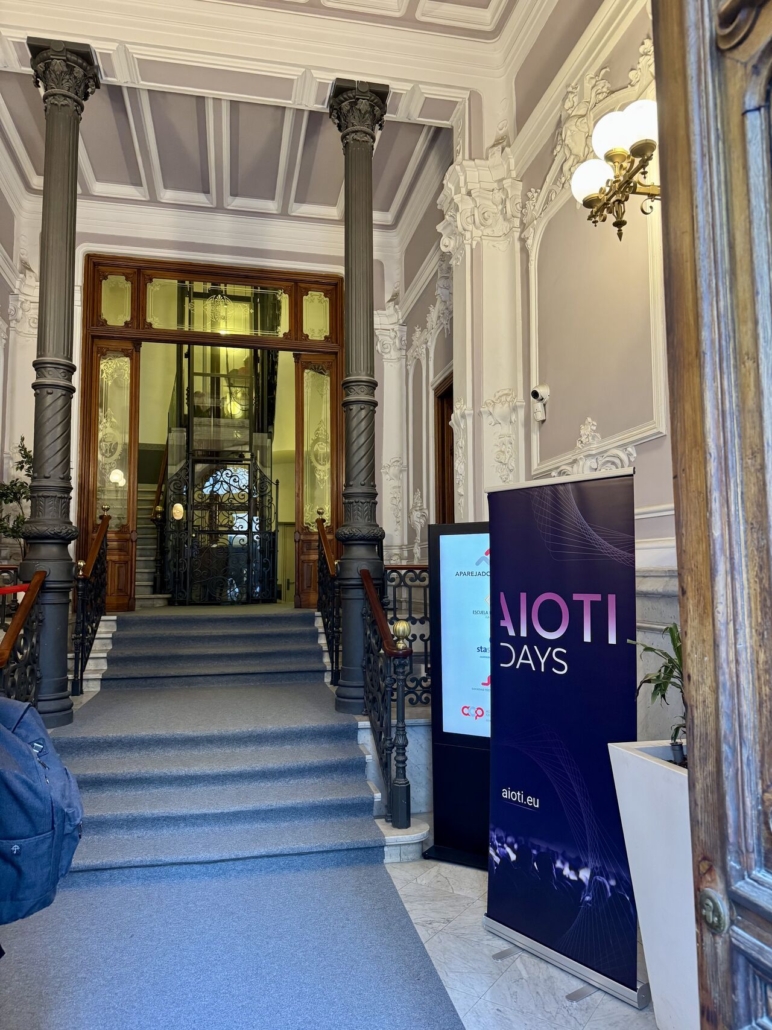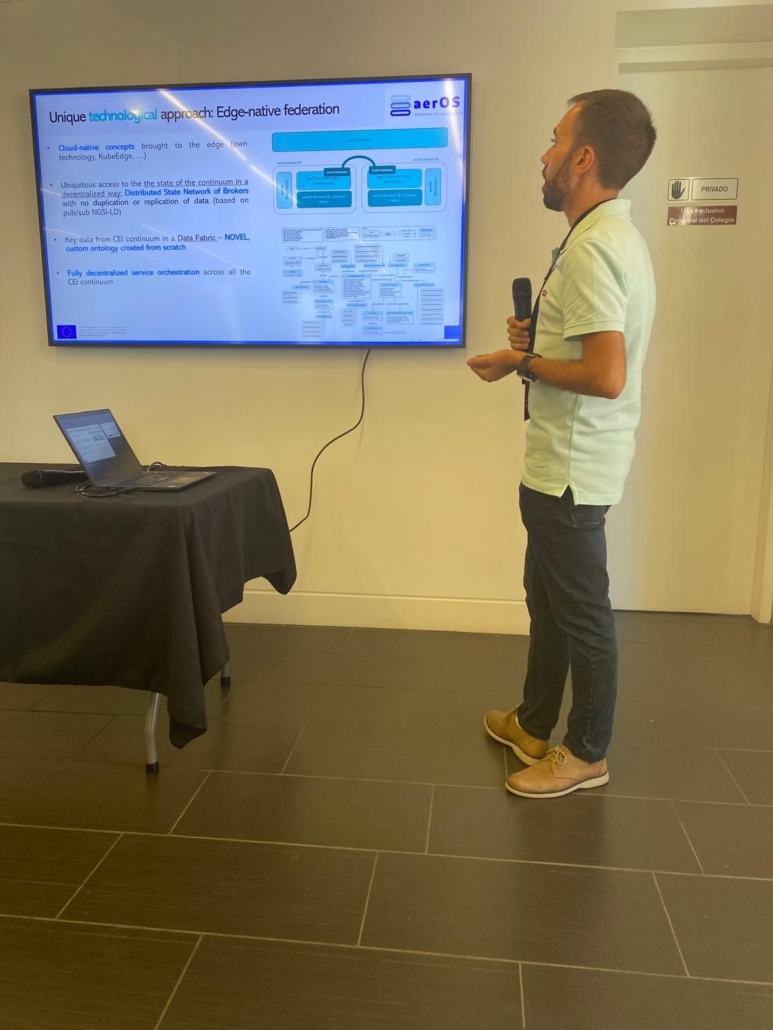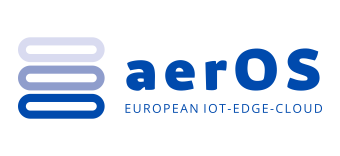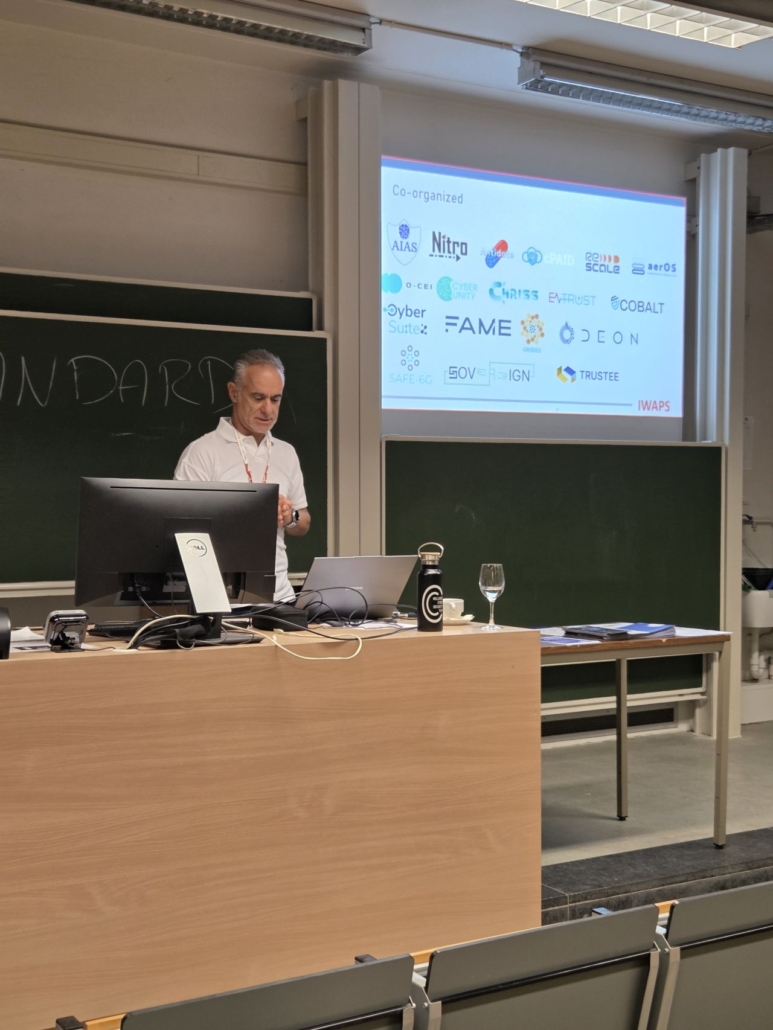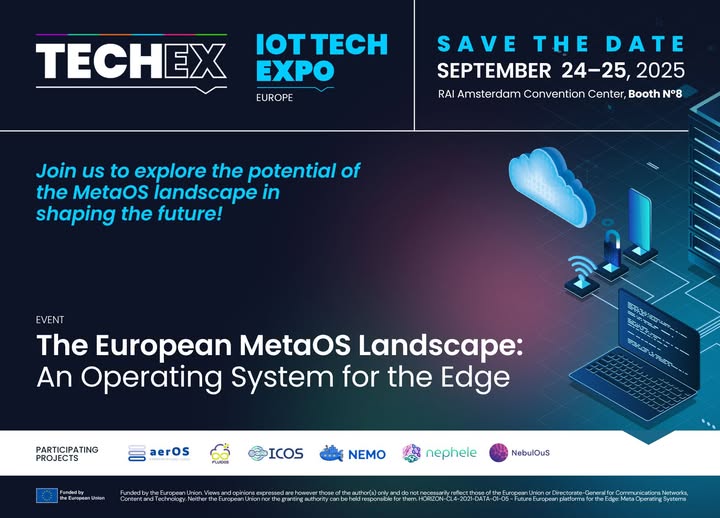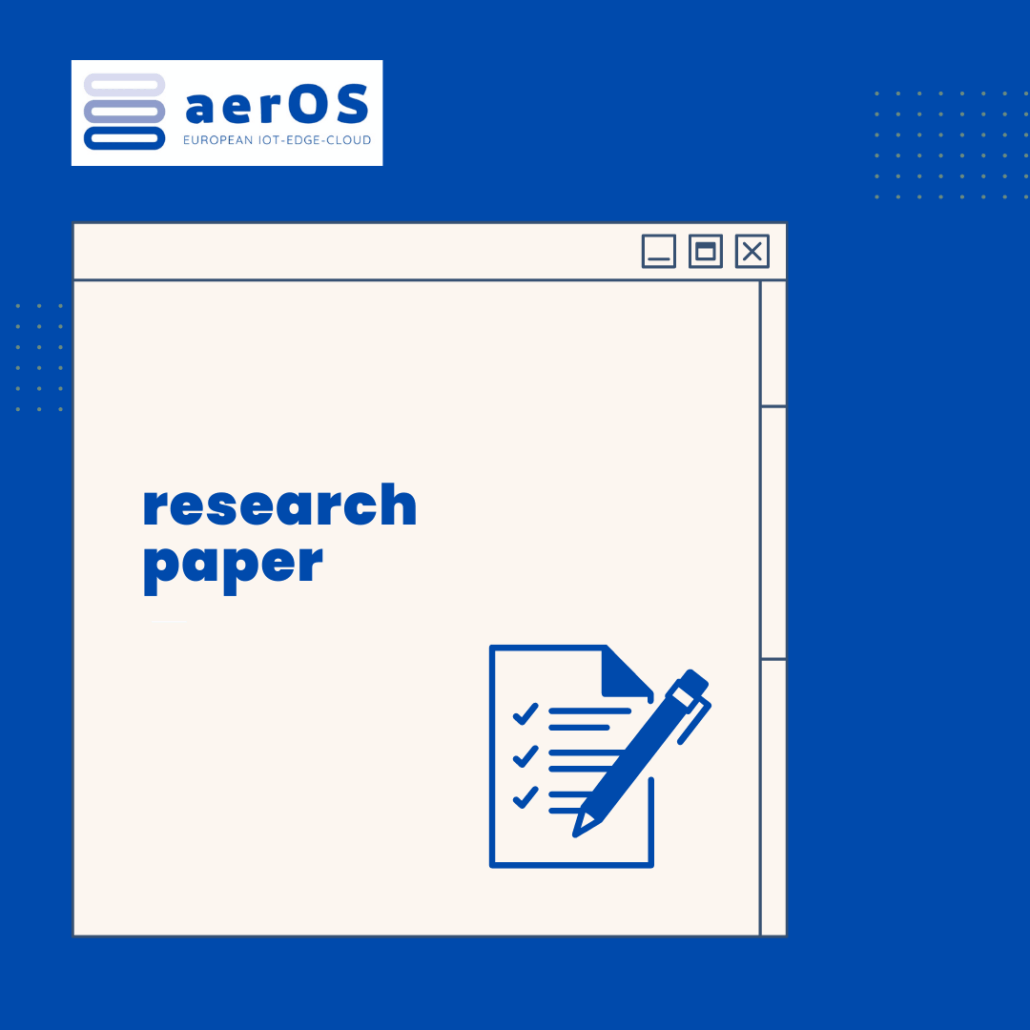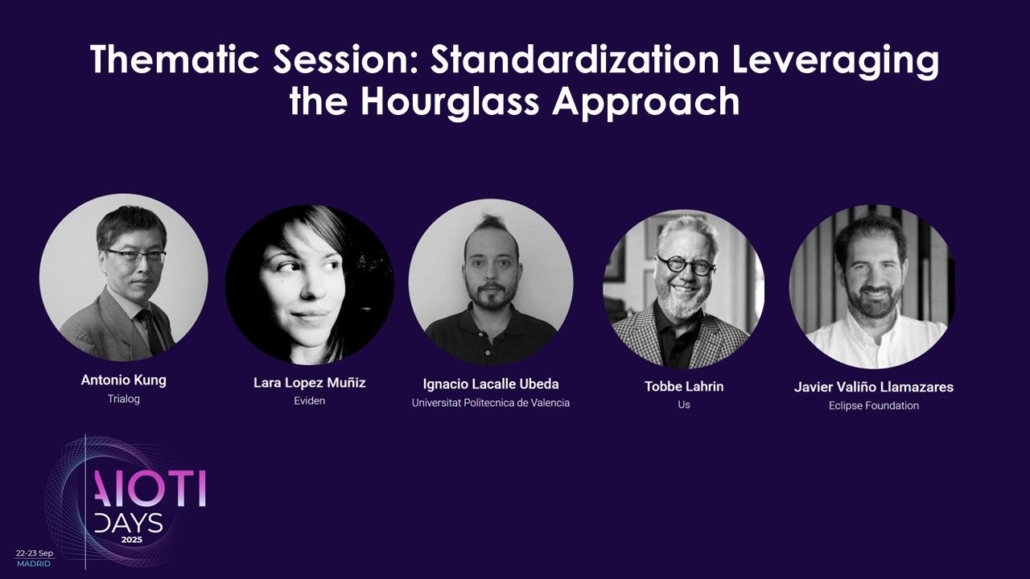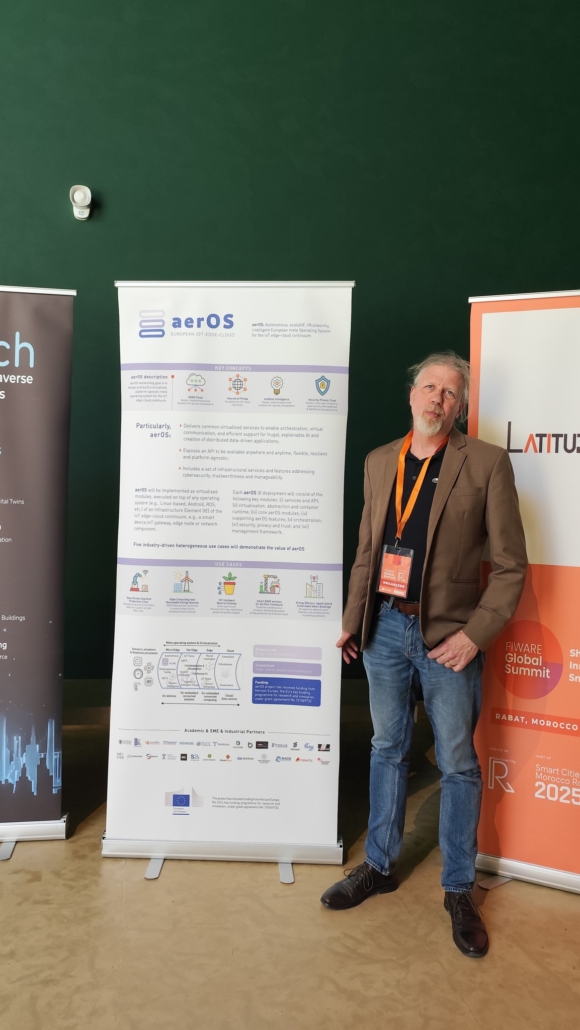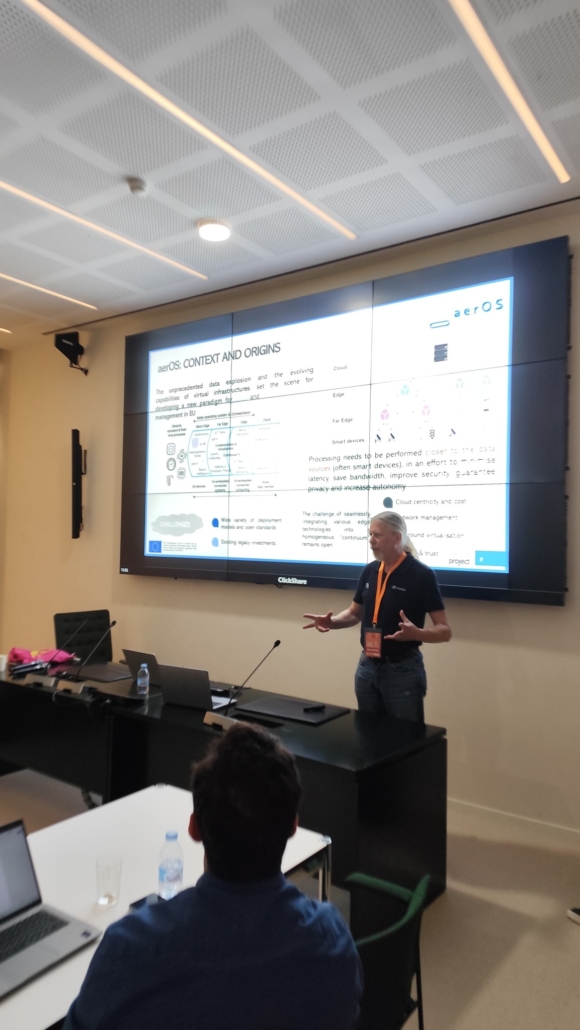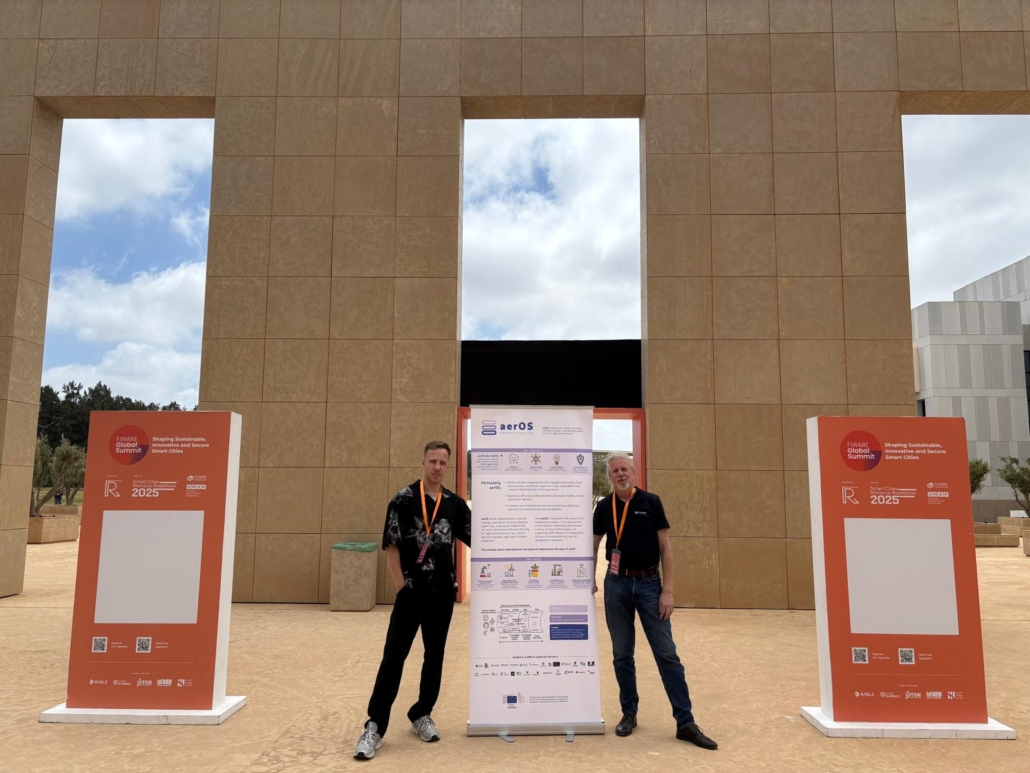The aerOS use case aims to demonstrate its architecture in the Smart Buildings market by optimising enterprise efficiency and safety through process and data autonomy and self-orchestrated IoT ecosystems, enhancing the energy efficiency of large buildings with real-time processing and frugal AI, and extending capabilities via 5G, NFV, and Network Apps. Expected benefits will be derived from intelligent aerOS nodes that enable autonomous, decentralised decision-making at the edge, while its unique abstraction approach bridges heterogeneity in data and platforms to orchestrate sensors, systems, and analytics across the IoT edge-cloud continuum. In Scenario 1 – Intelligent Occupational Safety and Health, aerOS will be integrated into the IoT ecosystem of a COSMOTE corporate building in Athens to monitor energy, luminosity, CO₂, humidity, temperature, motion detection, and desk occupancy, using embedded analytics and real-time/historical data to inform clustering and seating of employees, while actuation of ventilation, heating/cooling, and lighting systems with edge intelligence and frugal AI will ensure decentralised, secure, and low-latency management of office conditions for health and efficiency. In Scenario 2 – Cybersecurity and Data Privacy in Building Automation, COSMOTE will deploy aerOS cybersecurity components for authentication, authorisation, data governance, ownership, and sharing, alongside 5G, VNF, and potentially NetApps for executing security and privacy functions; video identification for safety will be supported by anonymisation and secure storage mechanisms. Driven by COSMOTE, NCSRD, FOGUS, INFOLYSIS, and UPV, this use case will showcase the energy-efficient, sustainable, flexible, and health-safe potential of aerOS in a real-world deployment and validation within COSMOTE’s enterprise office building in Athens, Greece.
Find it online here: https://www.youtube.com/watch?v=CG7JV2Au_RI&ab_channel=aerOSproject
